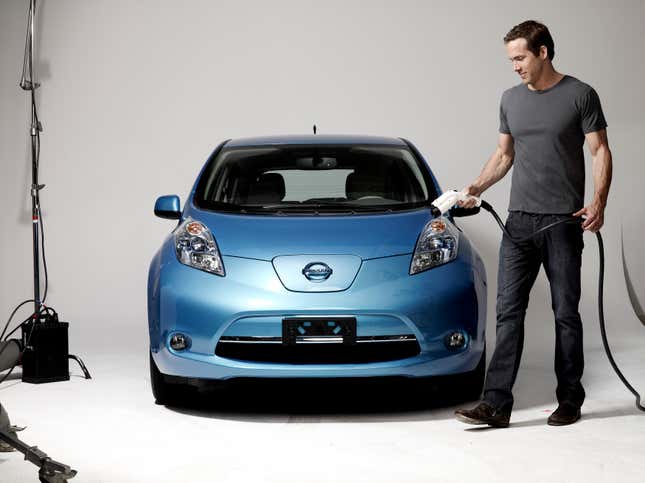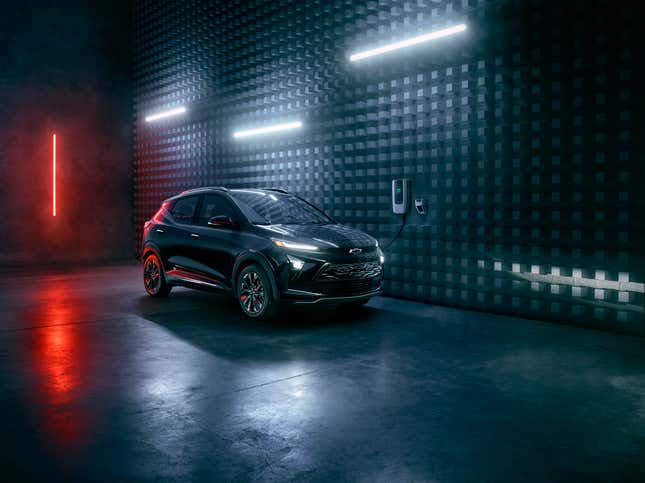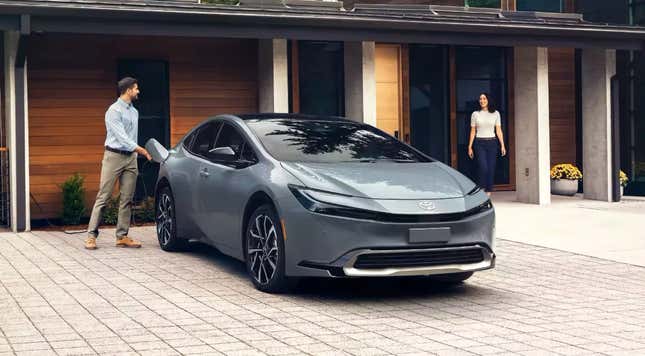You'll Be Waiting Years If You Charge Your EV With A USB Cable

The internet is occasionally a wonderful place, and becomes even more so when we allow ourselves to engage in a bit of silliness. A recent trend in the Reddit sub r/computers has been making up increasingly ridiculous cables and asking the group at large “Does this type of cable exist?” They can be as silly as NEMA 1-15 two-prong plugs into a USB-C, or the above suggestion, relevant to our interests, a lowly USB-A to SAE CCS1 electric vehicle charger [which, sadly, the tedious moderators have removed]. What a glorious world we live in.
The 2023 Dodge Challenger Swinger Edition Was The Most Fun Car Of The Year
This post was brought to my attention by Twitter user @ferio_252 (an excellent follow, for those of you still using Twitter.) In the post below, Paulo kicked things up a notch and brought some ludicrous math into it, which hits my sensibilities right in the smack of the dab.
“Based on the Hummer EV’s 246 kWh battery pack and a regular USB charging cable (2.5 watts), it would take roughly 12.5 years to charge.”
Because I love doing math, let’s look at approximately how long it would take to charge five other random electric vehicles, and we’ll also do the math for modern USB-C charging as well (which can deliver 240 watts on a 48v system.) It’s quite obvious that the CCS side of the plug isn’t going to be a factor in the throttling of this system, as this type of plug can deliver as much as 360 kW, and even the standard J1772 plug, which the CCS plug is based on, can support up to 19.2 kW.
2024 Porsche Taycan Turbo S with Performance Battery Plus – 93.4 kWh battery
Image: Porsche
While the Taycan’s battery isn’t even half the size of the Hummer EV’s, it would still take about four years and three months to charge up on a standard USB-A. A top-of-the-line USB-C charger, like you’d use for a gaming laptop or a large display, could get the German sports sedan topped up in just a little over 16 days.
2012 Nissan Leaf – 24 kWh battery

Image: Nissan
Okay, technically the old Nissan Leaf wouldn’t be able to charge with this adapter at all, because it used the CHAdeMO charging standard instead of CCS1, but let’s say we used a USB-A-to-J1772 adapter for this one, and let it go. The tiny battery in an early Nissan Leaf might actually be sort of viable to charge on a USB standard, as it would only take a year and change (400 days) with USB-A to get a Leaf to full. Super fast USB-C could get the job done in just four days and four hours.
2024 Rimac Nevera – 120 kWh battery

Image: Bugati Rimac
The hyper EV from Croatia is going to take a while to get charged up from a USB-A power source. Just about five and a half years. If I had to wait five and a half years to charge my hypercar and use it once, would it still be worth it? Yeah, maybe, the Rimac Nevera is just so damn cool. USB-C would drop that charging time to twenty days and twenty hours. Much more palatable. Honestly, do Rimac owners even take them out every twenty days?
Tesla Cybertruck With Optional Range Extender Battery Pack (est) – 170 kWh

Image: Tesla
Well shy of the Hummer EV’s gargantuan battery, the standard Cybertruck battery is estimated at around 123 kWh, though Tesla hasn’t announced an exact size. The optional bed-mounted range extender battery pumps that up by an extra 47 kWh (and is rumored to weigh as much as 700 pounds). With a full 170 kWh to charge up, a USB-A will take seven years and nine months to fill, while a USB-C could do it in twenty-nine and a half days.
2023 Chevrolet Bolt – 65 kWh battery

Image: Chevrolet
The Bolt has one of the smallest batteries on the market, but still gets pretty serious useable range out of it. On a USB-A it would get a full charge in just shy of three years. If you started right now, it would be full in mid-December of 2026. The USB-C cable will get you there in time for Martin Luther King Jr. Day (January 15th, twelve days from now).
2024 Toyota Prius Prime – 13.6 kWh battery

Image: Toyota
The comparatively tiny 13.6 kWh battery in the plug-in-hybrid Prius Prime wouldn’t even take a full year to charge on a USB-A plug, just 226.5 days. The USB-C charger would get your battery charged up in 2.36 days. If you plugged it in when you got home on a Friday, it’d be full again for your commute on Monday morning. Handy information!



